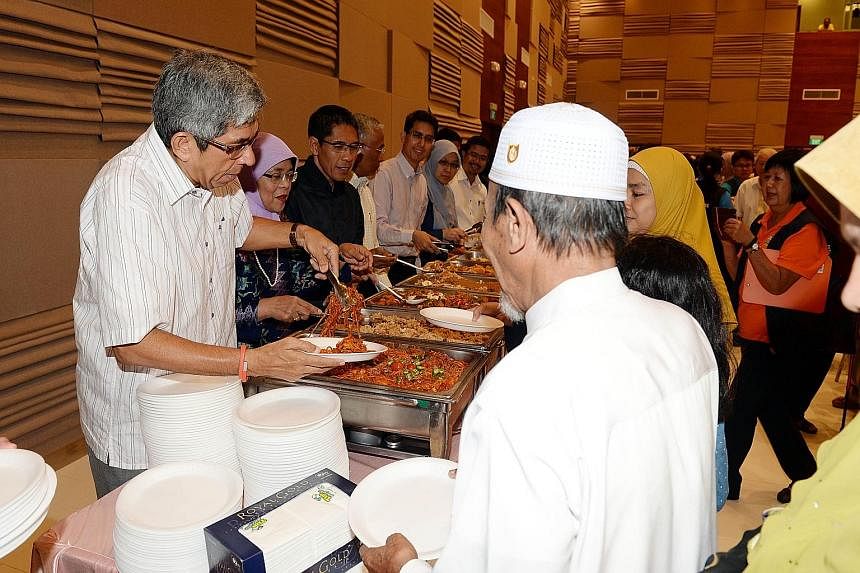MOSQUES will play a key role in the NTUC U Care Centre's (UCC) push to inform low-income workers in the Malay/Muslim community about employment rights and training opportunities.
The centre will team up with Singapore mosques to customise programmes and hold workshops for these workers.
They include those who receive zakat - money from the annual contributions that Muslims make to their community - and help from the mosques.
Minister-in-charge of Muslim Affairs Yaacob Ibrahim announced these plans yesterday at an iftar, or breaking-of-fast session, organised by the UCC, which is set up by the labour movement to advise low-wage workers on work-related issues.
The iftar was attended by Malay People's Action Party MPs and 300 low-wage workers and their families.
"With UCC's help, you can upgrade yourselves, be more informed of your employment rights, and at the end of the day lead better lives with better incomes," said Dr Yaacob, who is also Communications and Information Minister.
UCC director Zainal Sapari said Malay/Muslim workers form fewer than 10 per cent of participants at employment seminars and roadshows.
"So we've decided to take a more targeted approach by going to places where there will be many of them," he said.
The centre, he added, aims to reach out to 10,000 low-wage workers in the Malay/Muslim community this year.
Programmes on the cards include talks at mosques on issues like employment rights, and training youth volunteers and those in the Mosque Befrienders Scheme to explain these issues when they visit low-wage workers.
Dr Yaacob also spoke of the importance of teaching workers their rights: "When workers are uncertain of their rights, they risk being exploited by employers."
He cited cleaner Maznah Saleh, 62, who was not getting her Workfare Income Supplement payouts from her employer, but recovered it after seeking help from the UCC.
Part-time cleaner Zainah Rasif, 48, who had attended training at the UCC, said learning about her rights was an eye-opener.
"It taught me that we workers have a right to voice out, too, so if our bosses are not paying us... we can go to channels like the UCC for help," she said in Malay.
The PAP's 11 Malay MPs also continued their Ramadan tradition of donating money to a specific cause. This year, they will give $16,000 to help low-wage workers. Last year, their donations went to student bodies for programmes to help the community.


